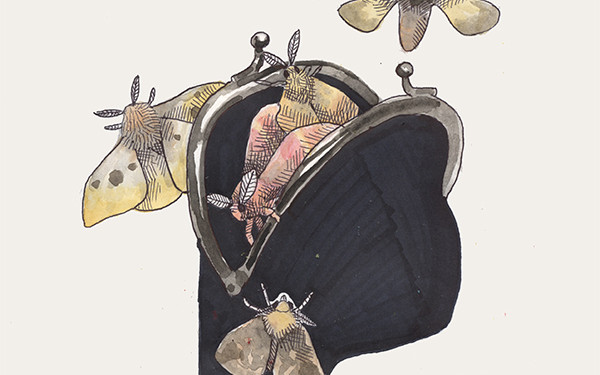Know Your Rights as an Intern in Canada
There were a dozen people sitting around a table, eating pizza, playing cards, and smoking cigarettes—so much so that I worried that my blazer on my chair would collect the smell.
There was no producer telling me to get content ready for a certain time. I didn’t have to hustle into a workplace in the morning or after class. I immediately felt relieved, only to suddenly realize that I’d have to fill in whatever available time I had with school.
I crashed the party after my last shift as an intern at CTV Montreal. I had spent the evening doing a demo at the anchor desk, reading sports copy stories, and once I realized my shift would be done in time for a fashionably late arrival to this party, I couldn’t pass it up.
Internships are fun, and I’d recommend them to anyone trying to get as much work experience as they can before being deployed into the real world after graduation. The conditions for interns now are seemingly better than when I jumped in a few years back.
At the very least, organizations such as the Canadian Intern Association are making it seem that way.
Formed in 2012 and federally incorporated in 2013, the Canadian Intern Association works to establish and improve employment, legal and health rights for interns across Canada. They’ve also aided in compiling studies on the nature of internships.
What’s most important is that if you are an intern in this country, you are now entitled to being paid the province’s set minimum wage at the very least.
My lone gripe is the student exemption that doesn’t allow students to be paid while going through an internship associated with their schooling—but at least you leave a workplace with experience and school credits that can go towards a degree. In Quebec, these internship laws have been in place since May 2015.
I’ve been on the internship grind since before university, beginning as a writer for the Montreal Community Contact, a paper that serves the city’s Black community.
Working at the paper gave me notable memories, including waiting for a phone interview with a stuntman on set in Bulgaria at 5:30 a.m., only to have his agent call me to say he overslept, and interviewing a two-time National Basketball Association champion and ex-teammate of LeBron James outside of a bathroom stall as he changed his clothes.
I stayed at the paper for as long as I could because I didn’t have many plans or job opportunities that summer. I also couldn’t think of any other place that was going to give me any money—the editor-in-chief would pay me $50 every now and then.
Still, I knew it wasn’t an actual income.
The next summer, I interned at TSN 690, a sports radio station in Montreal under Bell Media. Since I began the internship before I got into Concordia, I couldn’t make it count for school credit.
I spent two years at the station, editing audio clips, screening phone calls and a taking a few opportunities to run a show from their operating board and speak on-air. In an area where experience is crucial, it was hard for me to stop, even if I was working for free.
Through the radio station, I got an in with the company’s street team. I befriended, and in some cases recruited, interns who spread the good word about TSN, and its other sister stations, Virgin Radio, CHOM 97.7 and CJAD 800. There were perks like free food and the occasional paid job, but mostly it was long, unpaid shifts.
I also spent this past summer working in the sports department for CTV Montreal, writing copy stories for the anchors’ sportscasts and assisting in editing of their sports packages.
It got to the point that the anchors would leave me at my post for hours while I wrote entire sportscasts for them. It’s important to note that this internship did count for university credit, falling into the student exception for Quebec interns.
The internship experience can be arduous, but it is valuable.
I wasn’t alone in my experience with Bell Media. One of my colleagues, Dave Trentadue, who now produces a weekly show at TSN 690 called “In The Trenches,” spent three years as an intern on the show “Melnick in the Afternoon.”
“The reason I worked so many hours for free was that if I didn’t, my dream was over,” he said. “It was quite literally the only way I was going to get to where I wanted to be.”
Despite the long hours, Trentadue feels he’s paid his dues and earned goodwill with fellow journalists and media types in Montreal.
Perhaps if we had been a bit more attentive, we probably could have taken advantage of the Claim Back Your Pay initiative from the Canadian Intern Association.
Interns who have worked without pay can send in an Employment Standards or a Complaints Registration form to the company they’ve interned for, in order to recoup minimum wages for whatever hours they have worked. However, requests must be filed six months after the last day of the internship.
The internship experience can be arduous, but it is valuable. As a bonus, students can now benefit from being treated like employees instead of human livestock. But interns must realize that they have rights, and advocate for those rights when they’re violated.
If I can offer any advice, it would be to read through the Canadian Intern Association’s laws and guidelines for your province regarding internships before you begin. Document your hours, and if you’re in a situation where your internship will pay you, keep track of when you’re supposed to be paid.
I hope more paid opportunities will be coming my way, and any other intern’s way. We’ve gone past simply fetching coffee, and we are more than nameless stopgaps during summer vacations.
For more information regarding your rights as an intern, check out internassociation.ca.


_600_832_s.png)




2_600_375_90_s_c1.jpg)